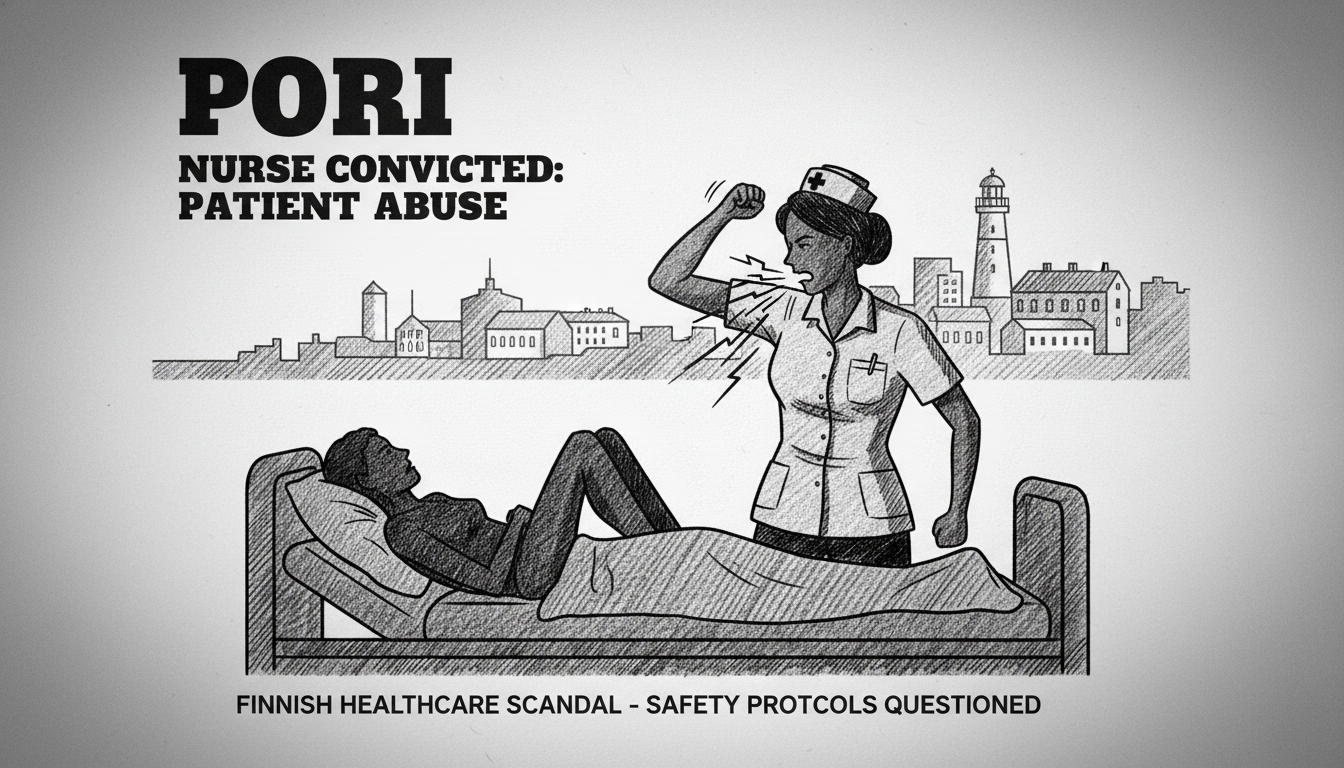A healthcare assistant faces conviction for physically and verbally assaulting a patient in Pori. The Satakunta District Court found the middle-aged woman guilty of abuse that occurred in March. The incident took place at the patient's residence, though court documents did not specify the exact location.
The nurse struck the victim and used degrading language, calling the patient derogatory names. She failed to appear in court for proceedings and reportedly described her actions as minor. The court nevertheless proceeded with the case and delivered a verdict.
This case highlights ongoing concerns about patient safety in Finland's healthcare system. Finland maintains high standards for healthcare quality, but isolated incidents challenge public trust. The Nordic country typically ranks high in healthcare satisfaction surveys, making such cases particularly noteworthy.
Healthcare workers in Finland undergo rigorous training and background checks. The system employs multiple safeguards to protect vulnerable patients. When violations occur, authorities typically respond with serious consequences for perpetrators.
Patient advocacy groups have long emphasized the importance of reporting mechanisms. They encourage patients and families to speak up about mistreatment. Finland's legal system provides channels for addressing healthcare misconduct.
The convicted nurse worked in direct patient care as a practical nurse. Such positions require close daily contact with patients. The profession demands both technical skills and emotional intelligence.
Legal experts note that healthcare violence cases often involve power imbalances. Patients in care situations frequently feel unable to report abuse. This case demonstrates the system's ability to address such incidents when they surface.
The Finnish healthcare system serves all residents through universal coverage. Municipalities organize primary healthcare services while specialized hospital districts handle complex cases. All providers must follow strict ethical guidelines.
What consequences might the nurse face beyond the legal verdict? Professional sanctions could include license revocation or restrictions. Healthcare employers typically conduct internal reviews following criminal convictions.
How common are such incidents in Finnish healthcare? Official statistics suggest physical violence against patients remains rare. Verbal abuse reports appear more frequently but still represent a small percentage of interactions.
The case raises questions about workplace culture and stress in healthcare settings. Nursing unions have highlighted staffing challenges and heavy workloads. These factors sometimes contribute to professional burnout.
International readers might compare this to healthcare standards in their countries. Finland generally maintains strong patient protection systems. This case represents an exception rather than the norm.
The court's decision reinforces Finland's commitment to patient rights. The legal system treats violence against vulnerable individuals with appropriate seriousness. The verdict sends a clear message about professional conduct expectations.

